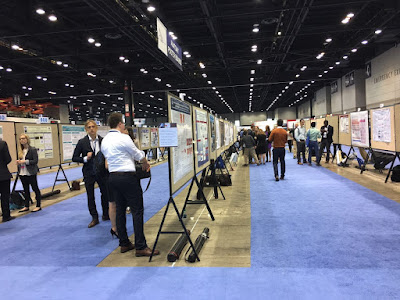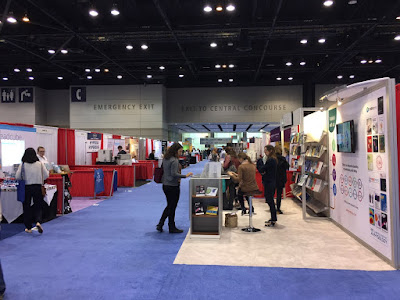Xiancong Zhang is a rising senior majoring in Chemistry and Biology. He was awarded a Spring 2016 Conference Grant which he used to present at the Experimental Biology Conference in Chicago.
I went to Experimental Biology (EB) in Chicago from 4.22-4.25 as an undergraduate poster presenter. EB is an annual international meeting of six societies, focusing on the latest research progress and cross-communication between disciplines. According to its website, it is a “multidisciplinary, scientific meeting features plenary and award lectures, workshops, oral and poster presentations, on-site career services and exhibits spotlighting equipment, supplies and publications required for research labs and experimental study.”
I had this great opportunity to present my poster about my research that I had worked on for two years. This experience was different from the presentations at school because at EB I met people who were working in the same field, and thus it requires me to have a more complete and thorough understanding of every aspect of my research. During the presentation I had audiences who were planning to set up a similar research, and asked me for details of the study. I also met with someone who just published a paper in the same field and he gave me some great advice to take in my own research. I was asked about the detailed procedures and meanings behind them. And in turn they gave me advice from another perspective. EB provides such a platform for scientists to mix their thoughts.
EB provides hundreds of
lectures, most of which are difficult to understand for me at that
moment. However, I learned their presentation skills, and it is always easier
to learn when there are comparisons: my schedule was filled with lectures, and
by comparing the speech of various lecturers I could learn the better lecture
skills.
I was invited to the APS
annual banquet. There I did some useful networking and also had a deeper
conversation with people in my lab. The president of the APS, Dr. Peter Wagner,
held a small talk with the young attendees. He talked with his stories about
how he thought process of getting into research. He was open to our questions from
the details of his life to the future of research. He was very friendly and
supportive, as he encouraged us to participate in further research as a
lifelong career.
The conference also provides
events for networking between undergraduates. Only with such events that I
realized how many people my age are working on similar topics as I do. I
learned a lot from their research and applied to my own work.
The experience at an
international conference gave me the chance to have a glance on the current
progress in physiology. It also expanded my networking in the
field, which would help my future career in research. I was nervous and
overwhelmed at the very beginning but as soon as I got used to the busy
schedule and brainstorming conversations the conference became enjoyable. As an
undergraduate student, I had a lot to learn and little to show to the
audiences, but as my study goes on there will be more opportunities open for
me, and this EB experience will be the start of the path.
Visit the Undergraduate Research Programs website to learn more about applying for Conference Grants.
Visit the Undergraduate Research Programs website to learn more about applying for Conference Grants.



Comments
Post a Comment